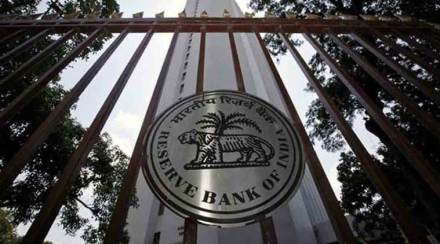With the Indian markets of late joining a clutch of others where the foreign portfolio investors (FPIs) seek to withdraw from owing to the coronavirus scare, the Reserve Bank on Tuesday came out with a terse statement assuring investors of its ability and readiness to keep the stability of the country’s financial markets it stands guard to. Noting that markets across the globe was experiencing considerable volatility due to ‘risk-off sentiments’ and investors’ flight to safe havens, the RBI iterated that it “was monitoring global and domestic developments closely and continuously” and was committed to take appropriate actions to ensure orderly functioning of the markets.
The rupee on Tuesday fell to a 16-month low of 73.297 against the dollar as FPIs continued to pull out funds from the Indian capital markets, leading to outflows of about $3.5 billion from bonds and equities in six sessions.
At its disposal the central bank has robust forex reserves of nearly $480 billion. The RBI is seen to have made its intention clear that it will intervene in the financial markets to prevent the rupee from going into free fall, in the event of an unprecedented sell-off by foreign portfolio investors in the credit and equity markets. Economists noted that the RBI has stressed on financial stability rather than growth in its statement and that means that it would likely act to manage liquidity and not rates.
The RBI’s action plan is part of a coordinated messaging campaign by central banks across the world. The RBI statement is also being seen as a stern warning to short-sellers, who may look to fish in troubled waters. Experts pointed out that continuous selling could have pushed speculators into action in the rupee non-deliverable forwards (NDF) market. Currency and equity strategists viewed the central bank’s message as a confidence-boosting measure even as sentiments turned very negative in the last few days.
Spillovers (of global market volatility) to financial markets in India have largely been contained. Growing hopes of coordinated policy action to mitigate a broader fallout to economic activity has boosted market sentiment today,” the RBI said.
“The tools you use to support financial stability are not the same as those you use for growth. So the RBI is telling you that unlike Australia and China, their line of action will be in the direction of liquidity and not rates,” said a senior economist with a foreign bank. Liquidity support could take the form of more forex swaps or long-term repo operations — often called ‘open-mouth operations’ in the markets for their ability to affect sentiment. Sameer Narang, chief economist and head-strategic planning and performance budgeting, Bank of Baroda, said, “If you look at India’s overall situation, forex reserves are high, oil prices are low and deficits are in control. So there are no macro risks in the current global risk-off. If need be more long-term liquidity may be injected through forex swaps or LTROs.”
Ananth Narayan, professor-finance, SP Jain Institute of Management Research, said that the RBI has followed in the footsteps of the US, EU and Japanese central banks in committing to preserve financial stability. “While monetary policy may have limited utility to address economic issues arising from any virus pandemic, it will certainly ease market sentiment. One would expect that the RBI would not allow excessive volatility and sell-off in fixed income and currency markets,” Narayan said, adding, “In addition, even if the RBI or the Monetary Policy Committee’s ability to effect rate cuts may be limited for now, the RBI can always use other tools such as LTROs to provide monetary relief if needed.”
Dhananjay Sinha of Systematix Group said, “The underlying objective of RBI’s statement is to build confidence that the central bank will infuse liquidity to defend the currency and curtail volatility.” “In the face of multiple external shocks, coordinated action will be taken to maintain stability in financial markets,” he said.
At the same time, some market participants took the view that in case the threat associated with the spread of the virus intensifies, the rupee may continue to depreciate. Rahul Gupta, head of research, currency, Emkay Global Financial Services, said. “The RBI is trying to build a positive sentiment with this announcement, but if the number of cases continues to rise then the currency will continue to depreciate.”
